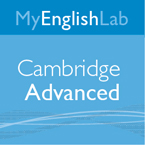 As English grows ever more in demand in the worlds of education and employment, more and more people are taking the CAE to prove their level of proficiency. Preparation for the exam is an excellent way to improve all four language skills, but the exam is demanding. Knowing exactly how it works, what each part is testing, and how to tackle the different skills is crucial for success. Below are our top tips for passing the CAE Cambridge Advanced English. For a thorough course of exam preparation, look no further than MyEnglishLab Cambridge CAE.
As English grows ever more in demand in the worlds of education and employment, more and more people are taking the CAE to prove their level of proficiency. Preparation for the exam is an excellent way to improve all four language skills, but the exam is demanding. Knowing exactly how it works, what each part is testing, and how to tackle the different skills is crucial for success. Below are our top tips for passing the CAE Cambridge Advanced English. For a thorough course of exam preparation, look no further than MyEnglishLab Cambridge CAE.
**** Top tips for passing the CAE, Skill by Skill ****
**READING**
 One of the most important things to bear in mind when tackling any of the tasks in the reading paper (as well as the listening paper) is that the texts will contain distractors. These are words or phrases that are similar to or even synonymous with words or phrases in the question (or in the wrong answers) which might lead you to choose the wrong answer. They are there to ensure you are paying attention to the whole text and not just looking for words that match between the questions and the text.
One of the most important things to bear in mind when tackling any of the tasks in the reading paper (as well as the listening paper) is that the texts will contain distractors. These are words or phrases that are similar to or even synonymous with words or phrases in the question (or in the wrong answers) which might lead you to choose the wrong answer. They are there to ensure you are paying attention to the whole text and not just looking for words that match between the questions and the text.- Before answering the questions, skim-read the text to get a general understanding of its content.
- Make sure you read both the questions and the options and underline key words and phrases.
- Where possible, try to work out the meaning of unfamiliar words from the context, but don’t waste time. You should only spend about 12 minutes on each of the CAE reading tasks.
**USE OF ENGLISH**
The Use of English tasks are included in the Reading Paper. There are four tasks:
- Multiple-choice cloze – this tests vocabulary, including phrasal verbs, collocations, linking words and dependent prepositions
- Open cloze– this part tests grammar, so the words you need to fill the gaps will be prepositions, auxiliary and modal verbs, conjunctions, articles, quantifiers, pronouns and so on.
- Word formation – this tests vocabulary
- Key word transformations– this tests your ability to paraphrase
Remember, correct spelling is important in this part of the exam.
For the Multiple Choice Cloze and the Open Cloze, make sure you read the text first, ignoring the gaps, in order to have a general understanding of the content. It’s important to look at the words both before and after the gaps in order to work out the correct answers. Work out which part of speech you need in the gap (e.g., auxiliary, modal, adjective, adverb, preposition etc.) and always re-read when you’ve finished to check that the text makes sense.
For the Word Formation task, keep in mind that you may have to make more than one change. For example:
I was __________________ with the city so I quickly got lost. FAMILY > unfamiliar
The Key Word Transformation exercise can often be the trickiest, but remember that you get two points of each answer. Don’t change the key word, only use between 3 and 6 words (contractions count as two words), no more and no less, and make sure you keep the meaning the same. So, for example, in the following only (4) is correct. Can you work out why the others are wrong? (Answers at the bottom of the article):
*My sister wouldn’t mind if I borrowed her hairdryer without asking.*
DIFFERENCE
*It _______________________ sister if I borrowed her hairdryer without asking.*
- It wouldn’t make any difference to my sister if I borrowed her hairdryer without asking.
- It makes no difference to my sister if I borrowed her hairdryer without asking.
- It would make a difference to my sister if I borrowed her hairdryer without asking.
- It would make no difference to my sister if I borrowed her hairdryer without asking.
- It would make no difference to your sister if I borrowed her hairdryer without asking.
- It would make no different to my sister if I borrowed her hairdryer without asking.
**WRITING**
 You have two tasks to complete:
You have two tasks to complete:
- An essay (this is compulsory and the topic is given).
- A choice of one of the following (not all will appear as options in any given exam): a letter/email, a proposal, a report or a review.
Most importantly of all, remember that in order to write well you need to think about:
- the target reader. Who are you writing to? A colleague, a magazine, a company, your teacher? etc.
- the aim of the text. What are you trying to do? Convey information? Persuade somebody of something? Complain about a service? Express your opinion? etc.
- the typical organisation of the text. Do you need a title? How many paragraphs do you need and how should they be ordered? Do they need headings? etc.
- the style of the text. Should it be formal, informal or neutral? Should you use contractions? Should you write descriptively or should you write factually? etc.
For both tasks:
- Take a few minutes to brainstorm some ideas and make a very simple plan before starting to write. This will help you to organise your ideas.
- Make sure you include all the points in the instructions.
- Don’t repeat the input language. Use your own words!
- Obey the word limit! Cambridge are very strict about this, so practice writing beforehand so that you are able to estimate your own word count reasonably well without having to waste time counting every few minutes.
- Sample answers are available online to give you an idea of what’s required, but remember the best writers are also the ones who read the most.
**LISTENING**
The recordings you will hear in the CAE might be interviews on the radio, monologues, speeches, talks, lectures, people telling anecdotes, general conversations and so on. You should expect to hear a wide range of accents, so prepare beforehand by familiarising yourself by watching a variety of English films and TV and listening to English radio programmes and podcasts.
Use the time before each recording starts to skim-read the questions and the options, underlining key words and phrases in both. This will help you to pinpoint the section of the recording that contains the answer. However, distractors (see above) are as important to be aware of in the Listening tasks as they are in the Reading paper. Avoid listening simply for words or phrases that match between the questions and the answers. This will often lead you to choosing the wrong answer.
In the Sentence Completion task, try to predict what kind of information you will be listening for, e.g. a place, a number, an amount of time, a type of activity, and adjective etc.
**SPEAKING**
The CAE speaking paper has 4 parts and is done with another candidate.
Part 1 (Interview) – Here you answer straightforward questions about your work or your studies, your likes and dislikes, your hobbies and so on. Make sure you extend your answers.
Part 2 (long turn) – Here you are given three pictures and asked to talk about two of them for 1 minute. Don’t merely describe them! Make sure you answer the question that is put to you about them. Your partner will be asked a follow-up question to which they should give a brief answer.
Part 3 (collaborative task) – Here both candidates are given a task (for example, choosing which project to fund to attract more people to your town) and some written prompts (e.g. a festival, a new visitors centre etc.). The examiner will ask you first to discuss the prompts and then to make the decision. Don’t simply take turns with your partner – interact! Make sure you work together to complete the task using language to express opinions, exchange ideas, respond to suggestions, show agreement and disagreement and so on.
Part 4 (Discussion) – Here you will have the chance to demonstrate that you can elaborate on the topics and ideas from Part 3 in more depth. Make sure you give full, extensive answers to the examiner’s questions and organise your ideas using linkers.
**AND FINALLY**
In order to do well at the CAE (as with all Cambridge exams) you need to have a good working knowledge of collocation. Collocations are pairs or groups of words that go naturally together. They will help you to understand the reading and the listening texts, they are tested in the Use of English paper, and they will make your speaking and your writing much more natural if you use them well. Be on the lookout for them when you’re studying and preparing (and make use of a good collocation dictionary). For example, can you complete the collocations in the following sentences? (Answers below):
- I much prefer the countryside to the city. I like the peace and _________.
- Even if I’m running late in the morning, I always have at least a _________ shower before leaving the house.
- Tom was bitterly _________ when he heard the news.
- The boss called a __________ with all staff to decide how to tackle the drop in sales.
- I hate it when I fall __________ schedule. I like to keep on top of my work.
(See below for the missing words)
Good luck!
Related articles:
– Top tips for passing the FCE (First Certificate in English)
– 7 tips for English exams to help you prepare
– 10 best practices for tackling English language exams
– PTE, TOEFL, IELTS, TOEIC, Cambridge exams… Which English exams should I choose?
Best ways to prepare:
Gold
Gold Experience
Expert
Pearson Test of English
Great Teachers’ Exams Place
Don’t forget to sign up to our ELT blog. You’ll find lots of great stuff to read here!
More info at Pearson ELT Spain & Portugal
Answers:
Key Word Transformation task:
- too many words
- tense is different (condition > present)
- opposite meaning
- correct
- meaning is different (my sister > your sister)
- key word has been changed (difference > different
Collocations:
- quiet
- quick
- disappointed
- meeting
- behind



Pingback: Tips for passing the FCE First Certificate in English
Pingback: 7 tips for teaching writing in the EFL classroom
Pingback: 5 great activities for using movies in the EFL class
Pingback: Collaborative learning in EFL class with teens and adults
Pingback: 7 tips for English exams
Pingback: Which English exams should I choose?
Pingback: 10 best practices for tackling English language exams
Pingback: 5 things to identify the English level of your students